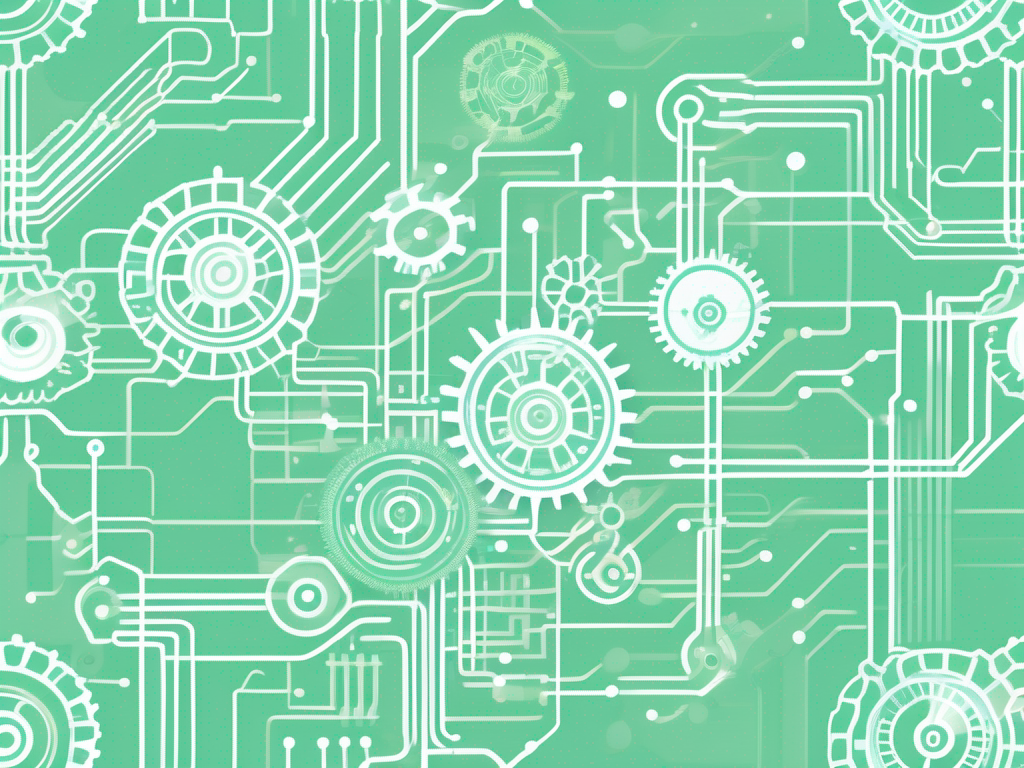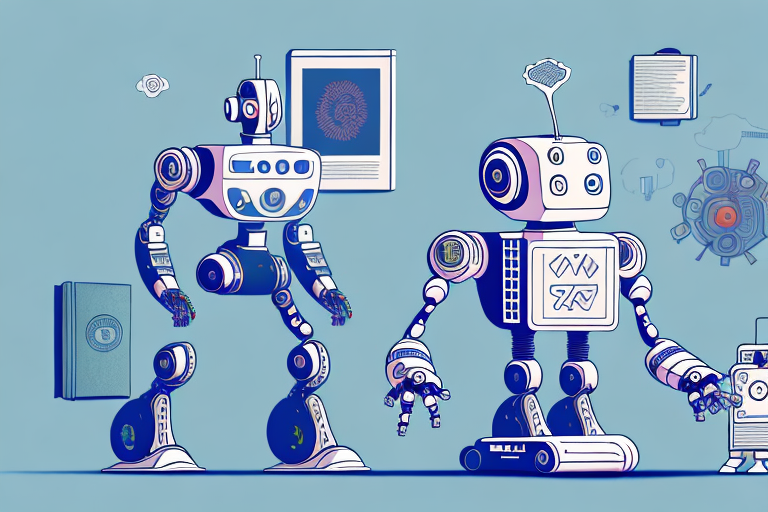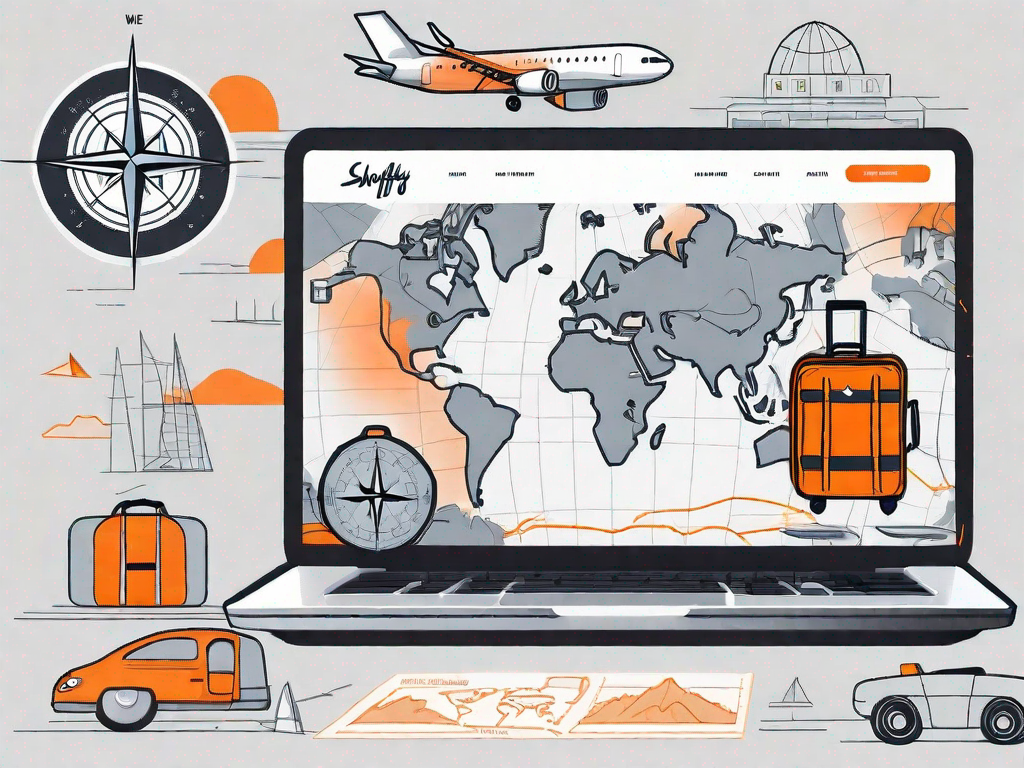.svg)
The Role of AI in Workflow Efficiency
.svg)

In today's fast-paced business environment, efficiency is not just a buzzword; it is a necessity. Companies are constantly seeking ways to streamline their processes, reduce costs, and maximise productivity. One of the most transformative technologies aiding this quest is Artificial Intelligence (AI). By integrating AI into various aspects of workflow, businesses can achieve unprecedented levels of efficiency. From automating mundane tasks to providing insightful data analysis, AI is revolutionising the way we work.
Understanding AI and Its Impact on Workflow
What is AI?
Artificial Intelligence refers to the simulation of human intelligence processes by machines, especially computer systems. These processes include learning, reasoning, problem-solving, perception, and language understanding. AI technologies are designed to perform tasks that would typically require human intelligence, thereby enabling machines to mimic human behaviour in a way that is both efficient and effective.
The Evolution of AI in Business
AI has evolved significantly over the past few decades. Initially, its application was limited to specific, well-defined tasks. However, with advancements in machine learning and data processing, AI has become more sophisticated and versatile. Today, it is an integral part of many business operations, from customer service to supply chain management.
AI's Role in Enhancing Workflow Efficiency
AI enhances workflow efficiency by automating repetitive tasks, thus freeing up human resources for more strategic activities. It also provides businesses with valuable insights through data analysis, enabling them to make informed decisions quickly. Moreover, AI-powered tools can predict trends and identify potential issues before they become problems, thereby reducing downtime and improving overall productivity.
How AI is Transforming Workflows
Automation of Routine Tasks
One of the most significant contributions of AI to workflow efficiency is the automation of routine tasks. Tasks such as data entry, scheduling, and basic customer inquiries can be handled by AI systems, reducing the workload on employees and allowing them to focus on more complex and creative tasks. This not only increases productivity but also improves job satisfaction among employees.
Data Analysis and Decision Making
AI excels at processing large volumes of data quickly and accurately. By analysing data, AI can identify patterns and trends that might not be immediately apparent to human analysts. This capability allows businesses to make data-driven decisions, enhancing their strategic planning and operational efficiency. AI-driven data analysis can lead to more accurate forecasting, better resource allocation, and improved customer insights.
Improving Communication and Collaboration
AI tools can facilitate better communication and collaboration within organisations. For instance, AI-powered chatbots and virtual assistants can handle internal queries, schedule meetings, and manage emails, ensuring that communication flows smoothly and efficiently. Additionally, AI can analyse communication patterns to suggest improvements, helping teams to collaborate more effectively.
Practical Applications of AI in Workflow
Customer Service and Support
AI is widely used in customer service to enhance efficiency and improve customer experience. Chatbots and virtual assistants can handle a wide range of customer inquiries, providing instant responses and freeing up human agents to deal with more complex issues. This not only speeds up response times but also ensures a consistent level of service.
Supply Chain Management
AI can optimise supply chain operations by predicting demand, managing inventory, and identifying potential disruptions. By analysing historical data and current market trends, AI systems can forecast demand more accurately, ensuring that inventory levels are optimised and reducing the risk of overstocking or stockouts. This leads to more efficient supply chain operations and cost savings.
Human Resources and Recruitment
In human resources, AI can streamline recruitment processes by automating the screening of resumes and identifying the best candidates for a role. AI systems can analyse candidate data to match skills and experience with job requirements, reducing the time and effort required in the recruitment process. Additionally, AI can assist in employee training and development by identifying skill gaps and suggesting personalised learning paths.
Challenges and Considerations
Data Privacy and Security
While AI offers numerous benefits, it also raises concerns about data privacy and security. Businesses must ensure that they handle data responsibly and comply with relevant regulations. Implementing robust data protection measures is essential to safeguard sensitive information and maintain customer trust.
Integration with Existing Systems
Integrating AI into existing workflows can be challenging, particularly for businesses with legacy systems. It requires careful planning and execution to ensure that AI tools work seamlessly with current processes. Businesses may need to invest in upgrading their infrastructure and training their staff to maximise the benefits of AI integration.
Ethical Considerations
AI systems must be designed and used ethically to avoid biases and ensure fairness. Businesses need to be aware of the ethical implications of AI and take steps to mitigate any potential negative impacts. This includes ensuring transparency in AI decision-making processes and regularly reviewing AI systems for any unintended biases.
The Future of AI in Workflow Efficiency
Continued Advancements in AI Technology
The field of AI is continually evolving, with new advancements being made regularly. As AI technology becomes more sophisticated, its applications in workflow efficiency will continue to expand. Businesses can expect even more innovative solutions that will further streamline operations and enhance productivity.
AI and the Human Workforce
Rather than replacing human workers, AI is likely to augment the workforce by taking over routine tasks and allowing employees to focus on more strategic and creative activities. This shift will require businesses to invest in upskilling their workforce to ensure that employees can work effectively alongside AI technologies.
AI as a Strategic Partner
In the future, AI will be seen not just as a tool but as a strategic partner in business operations. By leveraging AI's capabilities, businesses can gain a competitive edge, improve their decision-making processes, and drive innovation. Embracing AI as a strategic partner will be crucial for businesses looking to thrive in an increasingly competitive market.
In conclusion, AI plays a pivotal role in enhancing workflow efficiency across various industries. By automating routine tasks, providing data-driven insights, and improving communication, AI enables businesses to operate more effectively and efficiently. While there are challenges to overcome, the potential benefits of AI in workflow efficiency are immense, making it an essential component of modern business operations.
Related Posts
Let's
Let’s discuss how we can bring reinvigorated value and purpose to your brand.







.svg)